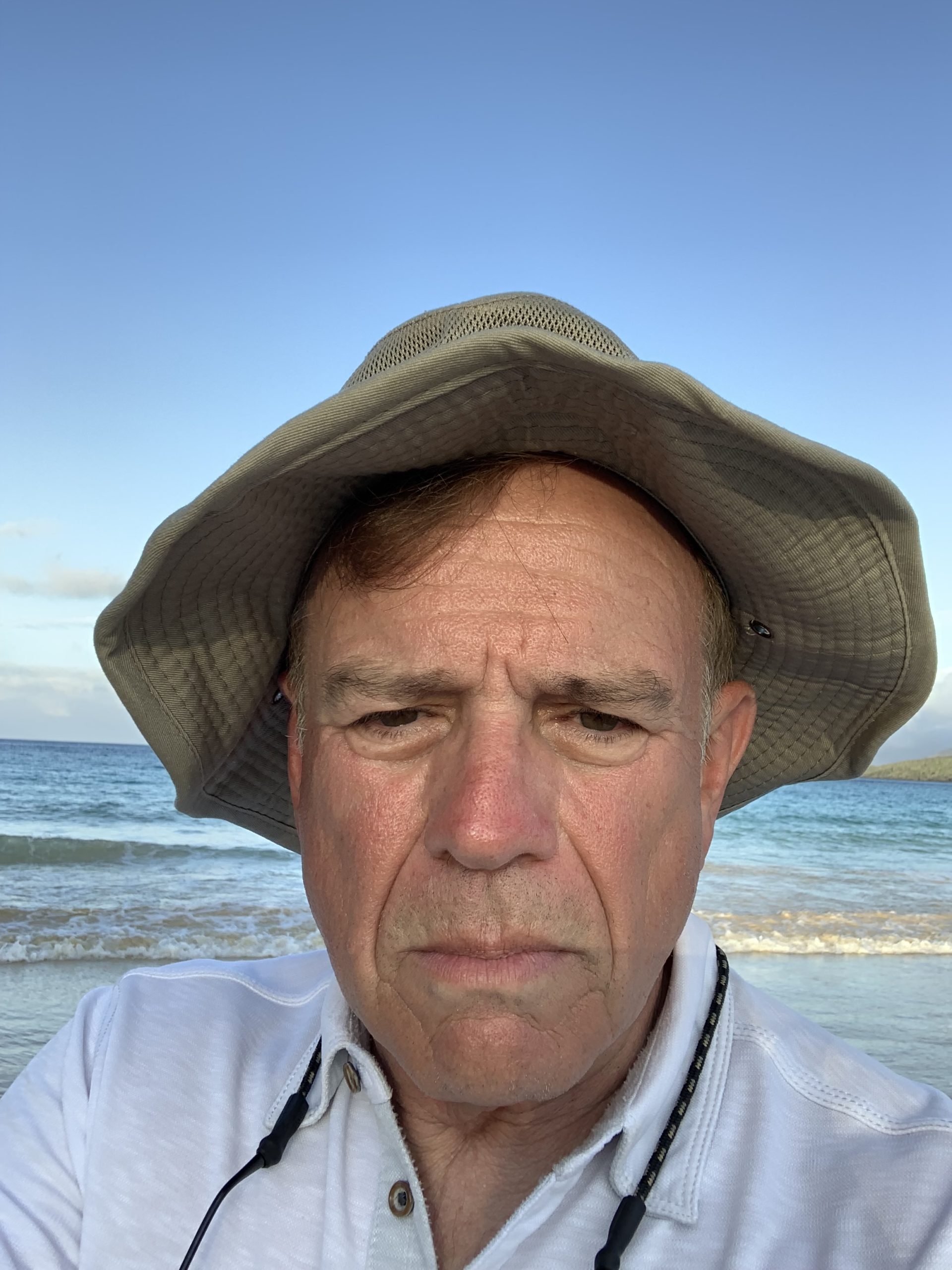By Peter Pavarini

I recently read that Apollo astronaut Buzz Aldrin celebrated his 93rd birthday by marrying his fourth wife, a woman 30 years younger than him.
This tidbit of news reminded me of an older woman I once sat next to on a Seattle-bound flight. After she asked about the reason for my trip, she informed me that she was going to an elder hostel in the Pacific Northwest. When I inquired what people did at an elder hostel, she proceeded to tell me the story of her long life.
The elderly lady had been born in New York City where she lived until age 30. She then married a man who worked for the federal government, so they moved to Washington, D.C. where they resided for 30 years until he retired. The husband didn’t live long after retiring, leaving his widow to travel the world and stay at elder hostels for the next 30 years. I’ll always remember what she said next:
“I’ve lived a wonderful life. I was young and carefree for the first third. I was married to a wonderful man for the second third. Then I became single again and I’ve lived a carefree life for the last third. And now, only God knows what I’ll be doing for the next third!”
The Home Stretch
Mathematics aside, I realize that – by any measure – I’m in the home stretch of my time on earth. I’ve been greatly blessed to be married to the same woman for 42 years, and I have the good health and financial freedom to enjoy a comfortable retirement. Even though I come from a long-living lineage, I have no expectations of making it to 120 like the woman on the plane. Given the tenuous state of the world right now, the idea of living another 10 or 20 years, much less another 50, is difficult to contemplate.
Like many my age, I’ve been gradually whittling down an informal Bucket List[i]. But with another birthday coming up, I’ve started to think I should be working on a “reverse” Bucket List rather than doing what’s left on the former.
Admittedly, the to-dos on my Bucket List generally fall within the groupings recognized by the esteemed Stanford Letter Project. In a survey of 3,000 people, researchers at the Stanford Medical School[ii] found that most people want to do the same things before they die:
- Travel (78.5%)
- Personal Goals (78.3%)
- Milestones (51%)
- Family & Friends (16.7%)
- Financial Stability (16.1%)
- Daring Activity (15%)
With the exception of spending quality time with family and friends, all of these categories strike me as self-absorbed – bordering on vanity. Would I really feel incomplete if I never climbed one of the Seven Summits? Would my obituary say he never got to sky dive or visit Antarctica? Okay, maybe I will feel cheated if I never see Van Morrison perform live.
The Fear of Death vs. the Fear of Life
Mark Twain said it best:
“The fear of death follows from the fear of life. A man who lives life fully is prepared to die at any time.”
Note that he didn’t say we should live foolishly or do things that achieve nothing but satisfy our egos. Instead, he was also reported to say:
“I was seldom able to see an opportunity until it had ceased to be one.”
Therein lies the sweet spot for most people, including me. Somewhere between experiencing death-defying adventures and allowing ourselves to be pushed beyond our comfort zone is a world still waiting to be explored.
Our Risk-Avoidance Culture
Twenty-First Century American culture has been shaped by the avoidance of risk. In the aftermath of 9-11, societal fears about terrorism, climate change and more recently pandemic have elevated the importance of safety and security, especially among the young.[iii] We used to part by saying “good-bye” (a contraction of “God be with ye”), but nowadays it’s more common to say “be safe” or “take good care”. We triple-lock our doors, change our passwords every 30 days, wear masks in public (even when there’s no evidence to support the practice) and buy insurance for every unforeseen calamity.
It should be no surprise, therefore, that a growing number of people who claim to have an “Anti-Bucket List” are mostly concerned about extending their vacuous lives as long as possible, instead of living their lives fully.
I’ve reviewed a good number of Anti-Bucket Lists posted online and they all appear derived from a contemporary strain of selfishness, if not outright narcissism. Some of the “no-can-do” precepts I found include:
- Don’t care about what other people think
- Don’t have sex without really wanting it
- Don’t stay in a job you no longer like
- Don’t put other people’s needs ahead of your own
- Don’t have more than one child
- Don’t share too much information about yourself
- Never buy cheap shoes
There are other nostrums that might seem reasonable to anyone old enough to know better:
- Never do vodka shots
- Never overpack for a trip
- Never get a tattoo of your current lover’s name
The Reverse Bucket List as an Alternative
Guided by Christian values and having my fair share of common sense, I don’t see much need to rewrite the handbook for living a purpose-driven life.[iv] So, I’ve begun writing a Reverse Bucket List – all the things I’ve committed never to do again before my time is up. Tell me what you think.
- Never Miss an Opportunity for Fear of the Unknown
As people age they naturally become more risk-adverse and, dare I say, more conservative. Avoiding something because you’ve never done it before is never a good reason unless you first educate yourself about the potential activity. Of course, it’s perfectly fine not to like some things, like beets or Brussel sprouts. Some activities just don’t seem like much fun, so why waste precious time learning a new sport like pickleball, which appears to be as boring as other sports I tried and didn’t care for? On the other hand, there are many recreational activities I’ve never tried and may be worth considering. For instance, last week I watched a few guys surf-casting in the Gulf of Mexico using a radio-controlled boat to position their weighted fishing lines. Since I’ve greatly enjoyed fishing in Canada in the past, maybe surf-casting is something I should give a try.
- Never Refrain from Addressing the Elephant in the Room
Without getting into a debate over Free Speech, I see many non-political reasons to speak plainly and honestly about things you know to be true. This is especially important in relationships with people who are dear to you. Correcting mistakes and pointing out erroneous thinking shouldn’t be optional even if the person in your life might feel hurt or offended. Nor is pointing self-destructive behavior “hate speech” just because that person happens to be of another race, gender or orientation. It’s not okay to see someone hurt themselves or others just because “you don’t want to make a scene”. The road to spiritual death is paved with plenty of well-intentioned coddling. As the well-worn adage goes, people are entitled to their own opinions, but not their own facts. Speak the truth in love.
- Never Spend Money Visiting Places That Are in Decline
We can help reverse the decline of American cities and states by not visiting the ones that are in the process of destroying themselves – even if they were once desirable destinations. Places like California[v], Chicago and New York need to hit bottom before their voters insist upon new leadership. If tourists, convention attendees, business people and other visitors stop pouring their dollars into the coffers of corrupt governments, they can hopefully influence change before the lawlessness and human misery of those places become irreversible. At the very least, I’m committed to redirecting my dollars to parts of our country that refuse to pander to the lowest common denominator among their citizens. Perhaps a few of these failing cities and states can still be saved, as New York City briefly was during the 1990s.
- Never Hold on to Things No Longer Needed
Having downsized my primary residence a few years ago, I learned the hard way that I have far more “stuff” than I really need. A smaller house forces you to decide what’s really essential and, more importantly, whether freeing oneself from artifacts of the past actually makes it simpler and cheaper to live in the present. I must admit, I still have an attic full of things that have not yet made it to the Goodwill or the shredder. But how can I possibly part with the thousands of books, CDs, and 35mm slides, prints, not to mention stamp collections, childhood love letters, journals, and various musical instruments? Digitalize, you say? I’ve tried that. I only managed to create new stuff in formats that will become obsolete before I look at those memories again. The simple truth is I still have too much. As difficult as it is to admit, my children, grandchildren and others who survive me will have no interest in most of what I’ve collected. Now, if I can only find the time to sort through everything I’ve accumulated over the years.
- Never Forget to Thank God for Every Blessing
This precept shouldn’t be hard even for those who neither believe in God nor adhere to a moral code greater than their feelings. Harvard Medical School discovered that:
“In positive psychology research, gratitude is strongly and consistently associated with greater happiness. Gratitude helps people feel more positive emotions, relish good experiences, improve their health, deal with adversity, and build strong relationships.”[vi]
And yet, thankfulness doesn’t come naturally. It’s something I need to consciously add to my daily routine. It’s especially hard to muster when on the surface everything seems to be going wrong. But starting with the fact that I’m still among the living when so many others I know aren’t, it seems like a miracle that I’m here. More than that, there’s so much to be done – so much still to learn about my God-given purpose. I am thankful for being endowed with a creative spark that compels me to make the most of every day. More than anything else, I am blessed with the energy and curiosity to experience everything – especially the people and places I’ve yet to encounter on my earthly journey. And when that journey ends, I am also blessed to know more awaits me on the other side.
[i] While it may have other origins, the phrase “Bucket List” is often attributed to the 2008 film of the same name starring Jack Nicholson and Morgan Freeman – two guys with terminal cancer who decide to live life fully before they kick the bucket.
[ii] https://sixtyandme.com/the-6-things-that-are-on-most-peoples-bucket-list/
[iii] Ben Franklin said “those who would give up essential liberty to purchase a little temporary safety deserve neither liberty nor safety.”
[iv] Rick Warren, The Purpose-Driven Life: What on Earth Am I Here For?, Zondervan (2012).
[v] Joel Kotkin, “How the California Dream Became a Nightmare”, Spiked, January 21, 2023.
[vi] “Giving thanks can make you happier,” www.health.harvard.edu/heartbeat/giving-thanks-can-make-you-happier# August 14, 2021.

Be First to Comment